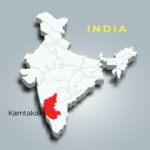Kerala: 10 Fascinating Insights Into the State’s History, Culture, and Social Impact
Introduction
Kerala, often referred to as “God’s Own Country,” is one of India’s most culturally rich and socially progressive states. Located in the southern part of the Indian subcontinent, Kerala boasts a unique blend of history, natural beauty, and progressive social systems. From its early history of trade and foreign influence to its current status as a leader in education, healthcare, and tourism, Kerala’s story is one of remarkable achievements. In this article, we explore Kerala’s rich history, its daily life impacts, cultural significance, and why it is considered one of India’s most important states.
History
Kerala’s history is deeply intertwined with trade and foreign influence. The region has been a major trading hub for centuries, attracting Persians, Arabs, Romans, and Chinese traders. This exchange brought not only goods but also cultural and religious influences. Spices, particularly black pepper and cardamom, have been Kerala’s main exports since ancient times and remain a key feature of its economy.
The region was once home to powerful kingdoms, such as the Cheras and the Travancore Kingdom. During the colonial period, Kerala was ruled by the Portuguese, Dutch, and British in succession, with each leaving its mark on the region’s culture, architecture, and religious practices. The St. Thomas Christians in Kerala trace their origins back to the arrival of St. Thomas the Apostle in the first century AD, making Christianity one of the oldest religions in the region.
Post-independence, Kerala became famous for its progressive social movements, particularly its land reforms and socialist policies, which helped improve the living standards of its people. Kerala’s achievements in literacy, healthcare, and gender equality have earned it recognition as one of the most progressive states in India.
Daily Life
Life in Kerala is a vibrant mix of tradition and modernity. The state is known for its high literacy rate, social development, and universal healthcare, making it a model for other regions in India. Kerala’s educational system, which provides free and compulsory education, has made the state one of the highest in terms of literacy rates in India.
The people of Kerala maintain a strong connection with nature and agriculture, especially rice farming, coconut cultivation, and spice farming. Kerala’s backwaters, houseboats, and beaches are famous tourist attractions, drawing millions from around the world every year.
Urban life in cities like Thiruvananthapuram and Kochi is fast-paced and modern, with a thriving economy supported by tourism, IT, and business sectors. However, the state has managed to preserve its rich cultural heritage, with local traditions, festivals, and crafts still flourishing alongside modern developments.
Key Facts
- Capital City: Thiruvananthapuram, also known as Trivandrum, is the capital of Kerala and is famous for its temples and historical significance.
- Progressive Healthcare: It is renowned for its universal healthcare system, which has led to remarkable health outcomes, including high life expectancy and low infant mortality rates.
- Tourism Hub: Known for its picturesque landscapes, including the backwaters, beaches, and hill stations, Kerala is one of the most sought-after tourist destinations in India.
- High Literacy Rate: It has the highest literacy rate in India, consistently achieving above 90% literacy.
- Spices and Agriculture: The state is a major producer of spices, especially black pepper, cardamom, and turmeric, which are exported globally.
- Cultural Heritage: It is famous for its classical arts, including Kathakali, Mohiniyattam, and Kalaripayattu, a traditional martial art.
- Diverse Religions: It is a multi-religious state, with Hinduism, Islam, and Christianity coexisting peacefully.
- Land Reforms: It was one of the first states to implement comprehensive land reforms, which redistributed land to the landless and significantly reduced feudal exploitation.
- Mangoes and Coconuts: It is known for producing high-quality mangoes and coconuts, both of which are central to its agricultural economy.
- Festival Celebrations: It is home to several major festivals, including Onam, Vishu, and Thrissur Pooram, which are celebrated with great enthusiasm.
Significance
It’s significance lies not only in its natural beauty and rich cultural heritage but also in its social achievements. The state has consistently performed well in indicators like education, healthcare, and gender equality. Kerala’s model of public welfare and its land reforms have been praised by economists and policymakers as a blueprint for inclusive development.
It’s tourism industry plays a pivotal role in its economy. With its backwaters, beaches, and hill stations, Kerala is one of the top tourist destinations in India, attracting millions of visitors every year. This has helped boost the local economy, providing employment opportunities for a large number of people.
The state’s progressive policies in terms of literacy, healthcare, and gender equality have earned Kerala a place as one of the most socially advanced regions in India. It is also a leader in promoting eco-tourism, focusing on sustainability and environmental conservation.
Observances and Wishing Kerala
It celebrates several major festivals throughout the year, with the most famous being Onam, the harvest festival, which is marked by feasts, dance performances, and the famous Vallam Kali (boat races). Other important festivals include Vishu, Thrissur Pooram, and Makaravilakku, each of which has cultural, religious, and historical significance.
Wishing the people of Kerala during these festivals is a way of honoring their culture and traditions, as well as acknowledging their progressive societal values.
FAQs About Kerala
- What is famous for? It is famous for its natural beauty, including the backwaters, beaches, and hill stations, as well as its cultural heritage and progressive social policies.
- What languages are spoken? The official language is Malayalam, but English is widely spoken, especially in urban areas.
- How is the healthcare system? It is known for its excellent healthcare system, which provides universal coverage and has led to impressive health outcomes.
- What are the major tourist destinations? It’s major tourist destinations include Alleppey, Kochi, Munnar, Kumarakom, and Varkala Beach.
- What is the literacy rate? It has the highest literacy rate in India, with more than 94% of the population being literate.
Conclusion
It is a state that stands out for its rich cultural traditions, progressive social policies, and beautiful landscapes. From its historic roots in trade and foreign influences to its modern-day reputation for education, healthcare, and tourism, Kerala has become a model for other states to emulate. The state’s commitment to social welfare, gender equality, and sustainability makes it one of the most important and influential states in India. Whether through its classical arts, land reforms, or stunning natural beauty, Kerala continues to make a significant impact on society both in India and globally.










